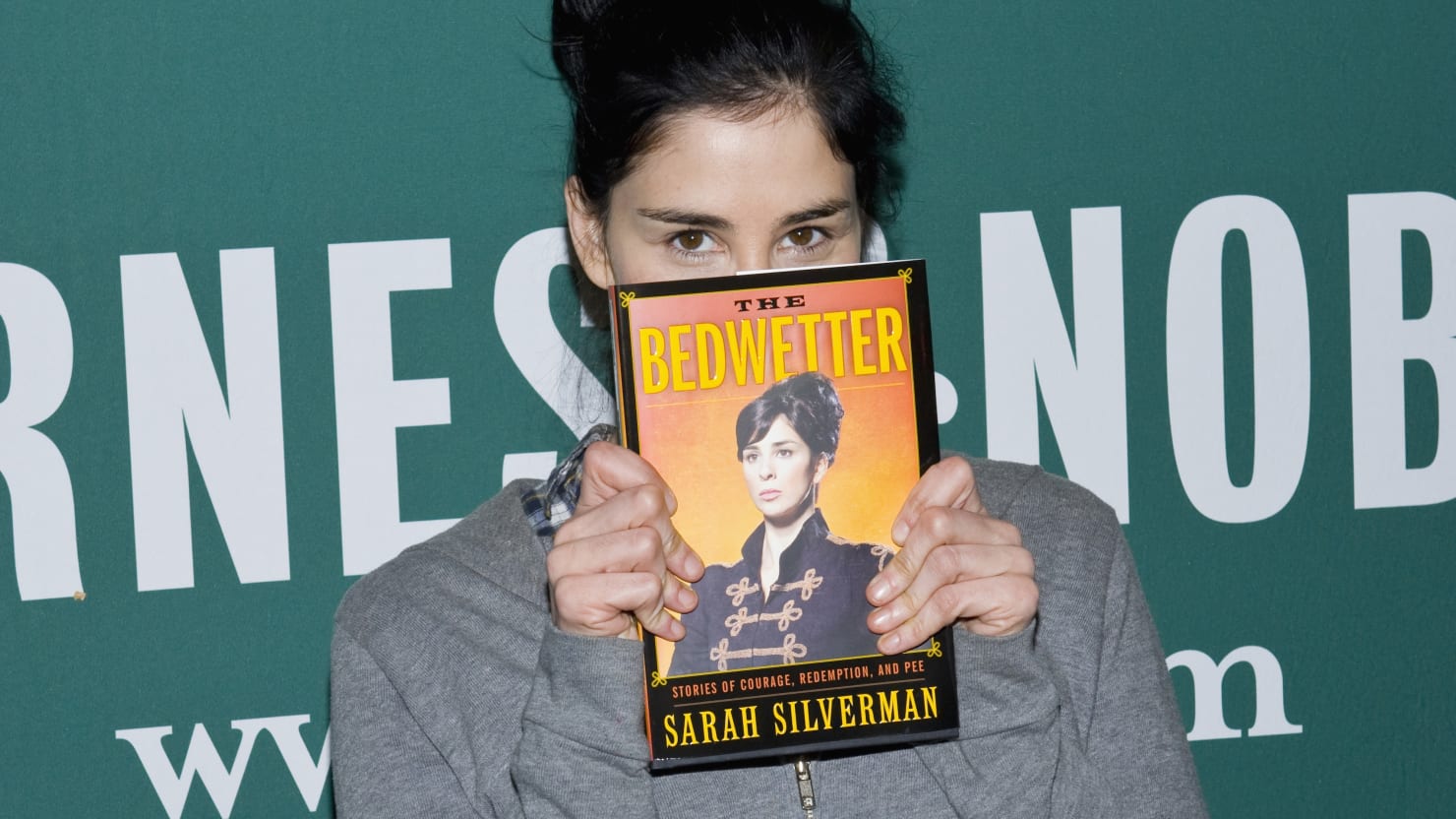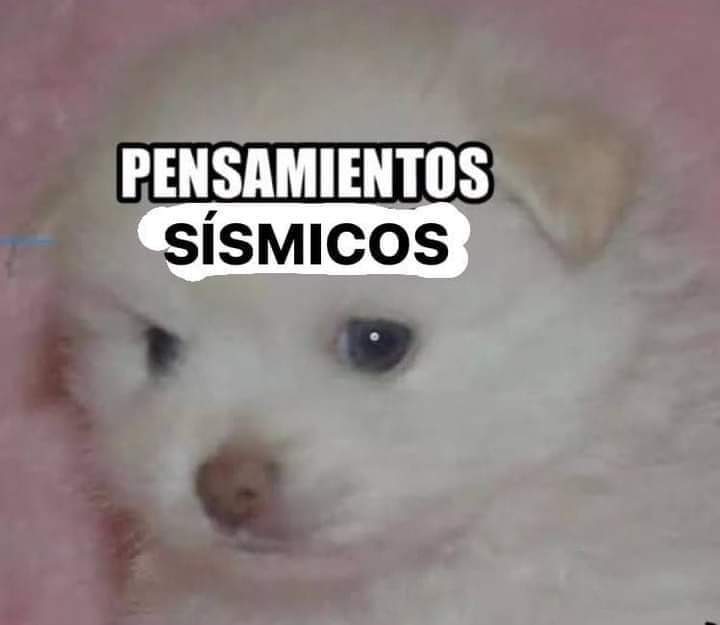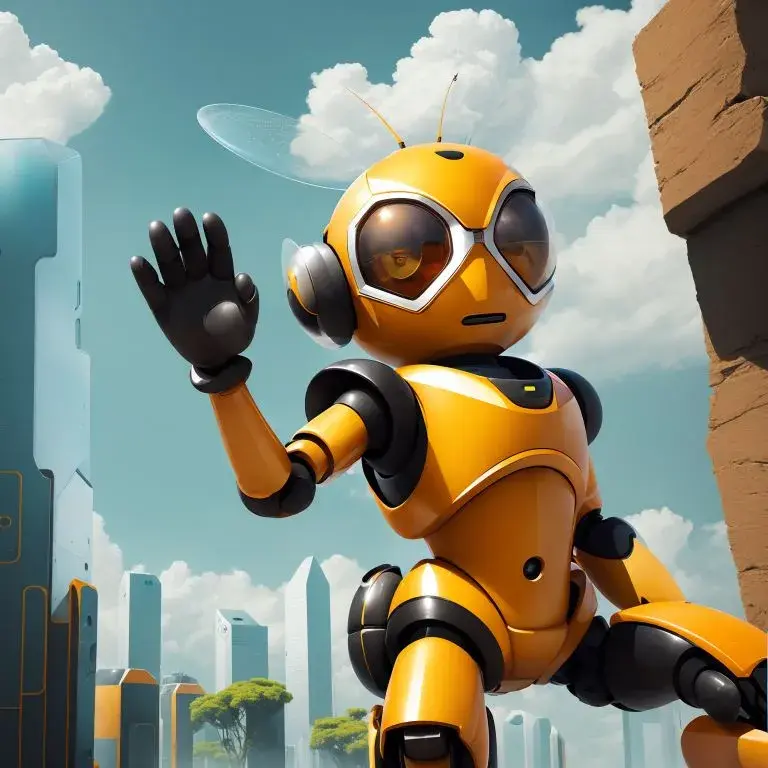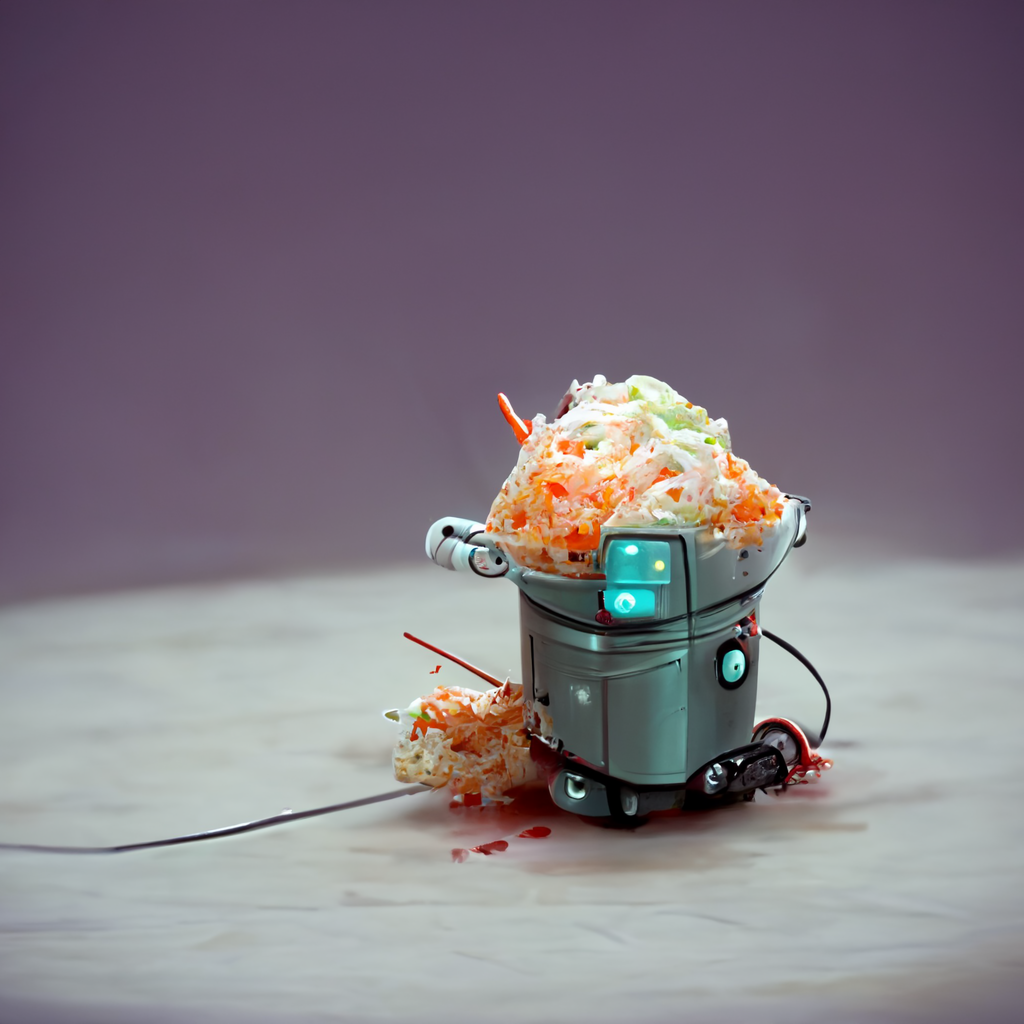People keep taking issue with this articles use of “summarizing” and linking to wikipedia… Summaries of copyrighted work are obviously not illegal.
This article is oversimplified and does a crummy job of explaining the problem. Ars Technica does a much better job explaining.
The fact that the ai can summarize these works in detail is proof that they were trained using copyrighted material without permission, (which is not fair use) Sarah Silverman is obviously not going to be hurt financially by this, but there are hundreds of thousands of authors who definitely will be affected. They have every right to sue.
Why does “fair use” even fall into it? I’m not familiar with their specific license, but the general definition of copyright is:
A copyright is a type of intellectual property that gives its owner the exclusive right to copy, distribute, adapt, display, and perform a creative work, usually for a limited time.
Nothing was copied, or distributed (in a form that anybody can consider “The Work”), or displayed, or performed. The only possible legal argument they have is adapting as a derivative work. And anybody who is familiar with how an LLM works knows that the form that results from reading in content is completely different from the source.
LLMs/LDMs are not taking in billions of books and putting them into a database. It is a very lossy process. Out of all of the billions of images trained from the Stable Diffusion database, the resulting model is 4 GBs. There is no universe where you can store billions of images into a mere 4 GBs. Stable Diffusion cannot and will not, pixel-by-pixel, reproduce a Van Gogh. It can make something that kind of looks like a Van Gogh, but styles are not copyrightable.
The same applies to an LLM like ChatGPT. It cannot reproduce entire books, or anywhere close to that. If you ask it to recreate Page 25 of Silverman’s book, it can’t do it. If it doesn’t even contain a minor portion of the original material, it can’t even be considered a derivative work.
They don’t have a case. They have a lot of publicity and noise, but they will lose to inevitability.
You make a lot of excellent points, but I think the main issue of contention is just using copyrighted work to train generative AI without the author’s permission regardless.
If they did ask permission, there would be no problem. But an author or artist should be given the choice if their work is going to be used to train an AI.
You make a lot of excellent points, but I think the main issue of contention is just using copyrighted work to train generative AI without the author’s permission regardless.
If I read a book at the library… and come up with an amazing revolutionary product. Then make a company and go on to make billions of dollar per year. The original book Author has no claim to my income.
There’s no contention. This is just a money grab. Copyright doesn’t disallow people from consuming the content as they please. It simply disallows someone to pass off the original works as your own when it’s not.
Well yeah, art is made to be consumed by people.
And all art is inspired by other art. People write scifi books after reading other scifi books etc Thats not the issue here.The issue is artists should be able to opt out of having their work taken and fed into a big project they have no control over.
Hard disagree. If my “company” from the previous post is a company that simply cribnotes and reviews books… You can’t stop me from doing that either. Don’t see people chomping the bit to take down other sites that have been doing this for decades.
The issue is artists should be able to opt out of having their work taken and fed into a big project they have no control over.
So in your opinion a should University have to ask each authors permission before using their work as a reference for each study run there one by one?
There is already a well established practise of getting permission in academic settings for reprinting written work/journal articles/etc. etc. And all published authors and academics understand that their work will be read, maybe used in an academic setting, summarized, debated, discussed, quoted, etc. Getting permission is definitely a thing in academia.
Sure, permission needs to be sought for reprinting. That’s not what we are discussing though. I will just take your word on that second part because as far as I know none of my professors asked author permission before telling the class to read anything.
I think the main issue of contention is just using copyrighted work to train generative AI without the author’s permission regardless.
You must define that in legal terms. This is a lawsuit, after all. It’s not illegal to “just use” copyrighted work. The words “generative AI” are not in a federal or state bill anywhere in the US.
They can have an “issue of contention” all they want, but if they can’t prove anything legally, they have nothing.
Exactly! You can’t just be like “AI bad” in front of the judge ._.
A lot of these comments are missing a large point which is that, if the claim is true, the books are being pirated and then effectively used for a commercial application.
So the authors are losing money through this process and did not give their permission for their work to be used in a commercial way.
The decision of this case will be wildly important for the development of AI.
If they have access to some library with those books they are ok.
I doubt they just used pirated book to train their AI and than publishing it without having non pirated paper trail, it is not that hard.
But let’s see.
The only a problem here is how have they accessed the books, they don’t share copyrighted material to others. But I don’t think anyone should be held guilty for reading a book, so I hold the same stance for AI.
If you don’t want people to read your book, just don’t publish it.
Do you know what library genesis and z-library are?? They are literally libraries of pirated materials.
And yeah they can read the book, but shouldn’t be able to use its content in a commercial way (e.g. make money) off of its contents without the permission of the writer/copyright holder.
‘Reading my book infringes on my copyright.’ say confused writers.
Dude, tell me, why do u think they have being doing this only with books and art but no music?
Thats because music really has people protecting their assets. U can have ur opinion about it, but that’s the only reason they haven’t ABUSED companies and people’s work in music.
It’s not reading, it’s the equivalent of me taking a movie, making a function, charge for it, and then be displeased when the creators demand an explanation.
What is the meaning of “making a function” in your sentence?
Like showing in the theater.
Seems like my grammar’s still shit, sry
There are a few reasons why music models haven’t exploded the way that large-language models and generative image models have. Maybe the strength of the copyright-holders is part of it, but I think that the technical issues are a bigger obstacle right now.
-
Generative models are extremely data-inefficient. The Internet is loaded with text and images, but there isn’t as much music.
-
Language and vision are the two problems that machine learning researchers have been obsessed with for decades. They built up “good” datasets for these problems and “good” benchmarks for models. They also did a lot of work on figuring out how to encode these types of data to make them easier for machine learning models. (I’m particularly thinking of all of the research done on word embeddings, which are still pivotal to large language models.)
Even still, there are fairly impressive models for generative music.
Example of music generation: MusicLM. The abstract mentions having to create a new dataset to get these results.
-
It’s probably much harder with music.
This is what I never understood about the whole training on AI thing.
When a human creates an artwork, they don’t do it out of a vacuum. They’ve had a lifetime of inspiration from artwork they’ve discovered that inspires then to create something wholly new. AI does the same thing
The AIs we are talking about are large language models. They take human work as input and produce facsimiles. They are owned by individuals or companies that have no permission to exploit in this way intellectual property tied to other people’s livelihoods to copy them.
LLMs are not sentient, they don’t have inspiration, they are not creative and therefore do not create in the sense an artist would. They are an elaborate mathematical equation.
“Training” an AI has nothing to do with training an actual living being. It’s just tuning: adjusting an algorithm incrementally until the operator is satisfied with the result. I think it’s defendable to amount this form of extraction to plagiarism.
Intellectual property in general is a ridiculous concept.
Most likely, if you ask ChatGPT to summarize a famous book, it does not need to have ever trained on the book itself. The easiest way for an LLM to create a summary of something is to base its summary off existing summaries created by humans. If it’s ruled in court that ChatGPT is infringing on the copyright of a book’s author only by repeating information it acquired from other summaries created by humans, what implications does that have for the humans who wrote the other summaries?
I partially agree with you, but I think you’re missing the end goal of Facebook et al.
As HughJanus pointed out it’s not really any different than a person reading a book and by that reasoning using copyrighted material to train models like these falls well within the existing framework of “fair use”.
However, that depends entirely on “the purpose and character of the use, including whether such use is of a commercial nature or is for nonprofit educational purposes.” I agree completely with you that OpenAI’s products/business (the most blatant violator) does easily violate “fair use” due to that clause. However they’re doing it, at least partially, to “force the issue” on the open question of “how much can public information be privatized?” with the goal of further privatizing and increasing commercial applications of raw data.
As you pointed out LLMs can only create facsimiles and not the original work, and by that logic they can’t exactly replicate the inputs either.
No I don’t think artists can claim that they own any and all “cheap facsimiles” of their works, but by that same reasoning none of these models produced should be allowed to be the enforceable property of any individual/company either.
For further reading check out:
- Kelly v. Arriba Soft Corporation on why “thumbnails” (and by extension LLMs, “eigen-images”, etc.) are inherently transformatve and constitute fair use.
- Bridgeport Music, Inc. v. Dimension Films for the negative impacts that ruling has had and how it still doesn’t protect the artists from their stuff being used for training and LLM.
- “Variational auto-encoders” for understanding on how the latest LLMs actually do achieve a significant amount of “originality” and I would argue are able to be minimally creative.
AIs are trained for the equivalent of thousands of human lifetimes (if not more). There’s no precedent for anything like this.
In other news, old man yells at clouds.
Yeah I’ll be very surprised if this goes anywhere, are they going to sue cliffsnotes as well?
If they’re being trained via Library Genesis and Z-Library, shouldn’t those be the target of the suit for enabling/allowing that?
I tested by asking ChatGPT 3.5 specific questions about The Bedwetter, and it seems like it was not trained on the full text of the book. I asked it what is the first sentence, and then what is the second paragraph, and it gave plausible but incorrect answers. I asked it for the table of contents, and then if a specific chapter was in the book, and it said “my responses are generated based on pre-existing data and do not have real-time access to specific book content”. I asked who wrote the foreward, and who wrote the afterward. It said Patton Oswalt wrote the foreward and that there is no afterward. In reality, Sarah wrote the foreward and God wrote the afterward.
ChatGPT conversation
Table of contents and first chapter from Google Books.LLMs compress data, there’s no way ChatGPT could remember every detail of the book alongside all the other information it stores in its encodings. The issue isn’t whether the entire text of the book is contained within the encodings, it’s whether it was trained on the book in the first place.
GPT3 is 800GB while the entirety of the English Wikipedia is around 10GB compressed. So yeah it doesn’t store evey detail of everything but LLMs do memorize a lot of things verbatim. Also see https://bair.berkeley.edu/blog/2020/12/20/lmmem/
if asked by a user prompts chatGPT to summarize a copyrighted book, it will do so.
So will a human. Let’s stop extending copyright law. Also, how you know it read the book, and not a summary of it, of which there are loads on the internet?
This is why I am pro AI art. It’s no different than a human taking inspiration from other work.
Nobody comes up with anything truly original. It’s all inspired by someone before them.
I don’t know how anyone is pro AI anything other than the pigs making money from it. Only bad can result of it. And will.
I don’t know how anyone can be anti AI.
It’s just a tool. To say that only bad can result of it is a bold claim that doesn’t make any sense.
Can you provide an example?
Just wait and see.
Only bad can result from it, just because some company is making profits?
No, that wasn’t a correlation. Only bad can result from it. Also, companies making profit love it. Separate things.
I’m not anti AI, I’m against companies making profit out of other peoples work without paying them.
Beyond that, it’ll try to summarize a book, but it often can’t do so successfully, although it will act like it has. Give it a try on something that is even a little bit obscure and it can’t really give you good information. I tried with Blindsight, which is not something that’s in the popular culture, but also a Hugo nominee, so not completely obscure. It knew who the characters were, and had a general sense of the tone, but it completely fabricated every major plot point that I asked about. Did the same with A Head Full of Ghosts, which is more well known but still not something everyone has read, and it did the same thing.
One thing I found that’s really fun is to ask it a question and then follow up with something like “Are you sure about that?” It’ll almost always correct itself and make up something else. It’ll go one step further and incorporate details you ask about. Give it a prompt like “Are you sure this character died of natural causes? I thought they were killed by Bob” and it will very frequently say you’re right and make up a story along those lines that’s plausible within the text. It doesn’t work on really popular stuff; you can’t convince it that Optimus Prime saves Luke Skywalker in RotJ, but anything even a little less well known and it’ll tell you details that it’s making up whole cloth with complete confidence.
Another highly amusing thing to do is to ask it about non existent chemicals or antenna types. (Try “inverted tripole” or “dinitrogen azide”) It always generates plausible but incorrect answers (eloquent bullshit).
Also, how you know it read the book, and not a summary of it, of which there are loads on the internet?
In the case of ChatGPT, it’s hard to tell. OpenAI won’t even reveal what their training dataset was.
Researchers have done some tests to tease this out, and they’re pretty confident that it has read quite a few books and memorized them verbatim. See one of my favorite papers in a while, Speak, Memory: An Archaeology of Books Known to ChatGPT/GPT-4.
“If a user prompts ChatGPT to summarize a copyrighted book, it will do so,” the suit claims.
https://en.wikipedia.org/wiki/The_Bedwetter
Time to add wikipedia to the suit!
OP, I just wanted to say thank you for writing such a good title. It’s rare to get such an informative, clickbait-free title these days.
My pie in the sky hope is that copyright somehow becomes less stringent after all of this.
Don’t get me wrong I want protections for creators and support reasonable copyright (life of the author +25 years with the possibility of a 15 year extension) but letting a company lord over an IP for damn near a century isn’t ideal for anyone.
The major scenario that I at least hope holds true out of this is that the AI “creations” aren’t eligible for copyright themselves. If the powers that be allow all this AI created stuff copyright protection it’s going to be a gigantic mess.
Pure “prompt → image” with nothing in between I absolutely agree. It’s lazy and ripe for abuse by copyright trolls. That being said there’s a lot more in the world of AI assisted art than what most people are aware of.
Determining where the legal lines will be drawn is going to be a monumental task but I think there’s value in allowing authors to retain copyright on AI assisted works. I also can’t see the free open source models not going the way of restricting training data to public domain works like Adobe did with Firefly if that becomes a legal issue.
Here is an alternative Piped link(s): https://piped.video/watch?v=h-BIC9iuPGc
Piped is a privacy-respecting open-source alternative frontend to YouTube.
I’m open-source, check me out at GitHub.
deleted by creator
I guess she found a way to make money on a book nobody is buying after all.
They made a musical out of it so I’m sure it sold just fine. The pointless disparaging based on no facts isn’t very useful to this topic.
Lawyers goings to have lots of gigs these days
Seems very improbable that they scraped a pirate website with forced registration and tight daily download limits (10 books a day max?) to get content that’s often mislabeled and not presented in an homogeneous way.
Probably it’s just using the excerpt from Amazon (which instead with paid API access is much more easy to access) as a prompt and build on it
There’s been ongoing suspicions that pirated content was used to train popular LLMs simply because popular datasets used for training LLMs do include such content. The Washington Post did an article about it.
Google’s C4 dataset used for research included illegal websites. What remains to be seen is if it was cleaned up before training Bard as we know it today. OpenAI as revealed nothing on its dataset.
The sources for those websites are all being archived as a huge torrent. You don’t have to download every single book one by one, if you are interested in all of them…


















